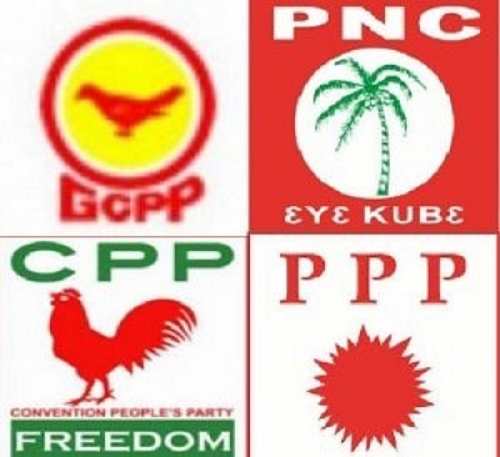
Small parties have potential to make good showing — Analysis
Contrary to what the bare facts of the 2016 General Election show, an analysis of the returns has revealed that small political parties in the country have the potential to make a good showing in future.
Advertisement
However, that potential, according to a political researcher, Mr Kwesi Jonah, can also only be realised if they adopted strategies such as mergers, alliances and coalitions.
“Small political parties in Ghana have a huge potential if they look at their strategy,” he said.
Mr Jonah, who is also a Research Fellow at the Institute of Democratic Governance (IDEG), undertook the analysis and shared the results with participants in a two-day post-election and assessment workshop at Ada which began on Wednesday, June 27.
Organised by IDEG, in association with the Social Liberal Party of Denmark, the two-day meeting for representatives of small parties was primarily to mobilise them around the key issues and challenges of the past elections and plan for the future.
It was organised as part of ongoing activities under the Small Political Parties and Multiparty Democracy in Ghana (SPMDG) programme of IDEG, the Radikale Venstre (RV) of Denmark and the Danish Institute for Parties and Democracy (DIPD).
Presidential
According to Mr Jonah, candidates of the four small political parties in the presidential contest, that is the Convention People’s Party (CPP), the People’s National Convention (PNC), the Progressive People’s Party (PPP) and the National Democratic Party (NDP), together received 170,874 votes, which was about 1.6 per cent of the total value of valid votes cast.
The only independent candidate in the presidential race, Mr Jacob Osei Yeboah, collected 15,911 or 0.15 per cent of the votes.
Parliamentary
When it came to the analysis of the parliamentary results, Mr Jonah said nine small parties fielded some 509 candidates.
The nine parties are the CPP, PPP, PNC, NDP, All People’s Congress (APC), United Front Party (UFP), United Progressive Party (UPP) and the Great Consolidated Popular Party (GCPP).
Unfortunately, none won a single seat; however, their performance was remarkable, with a close look at the figures revealing that in some constituencies, such as Komenda Edina Aguafo Abireem (KEEA), they almost won the seat.
He stated that in more than 10 constituencies, candidates fielded by the small parties garnered almost 20 to 30 per cent of the votes.
Also in more other constituencies, as much as 10 per cent of the votes were collected by them.
“This means that they have a potential in those constituencies, and when you put it all together it shows that small parties are not performing badly in more than 25 constituencies; they have the potential,” he said.
According to him, translating the potential into reality would mean strategic organisation to form electoral alliances, mergers and coalitions.
Mr Jonah further remarked that the analysis showed the need for small political parties to be strategic in their activities.
Importance
Setting in context his analysis of the performance of small parties in the 2016 general election, Mr Jonah said their role, particularly in electoral systems where proportional representation was used, could not be overemphasised.
For instance, he said, the Conservative governing party of the United Kingdom (UK) had to form an alliance recently with a small party, the Democratic Unionist Party (DUP).
He added that the fortunes of small parties in Ghana, however, seemed to be dwindling; with the three parliamentary seats of the PNC and the two seats of the CPP won in 2004 being lost in subsequent elections, so that the small parties controlled no seat in Parliament at all, currently.
“I am telling them this time around that if you want to achieve different results, then you cannot rely on the old strategies,” he maintained.
An official of the Social Liberal Party of Denmark, Mr Jorgen Estrup, in his submissions said small parties faced a lot of challenges in the previous elections, but needed to capitalise on their challenges for future success.
His colleague, Mr Bernhard Trier Fredericksen, said IDEG provided a platform for small parties to continue discussing and recreating themselves into relevance in the country.
Writer’s email: [email protected]



